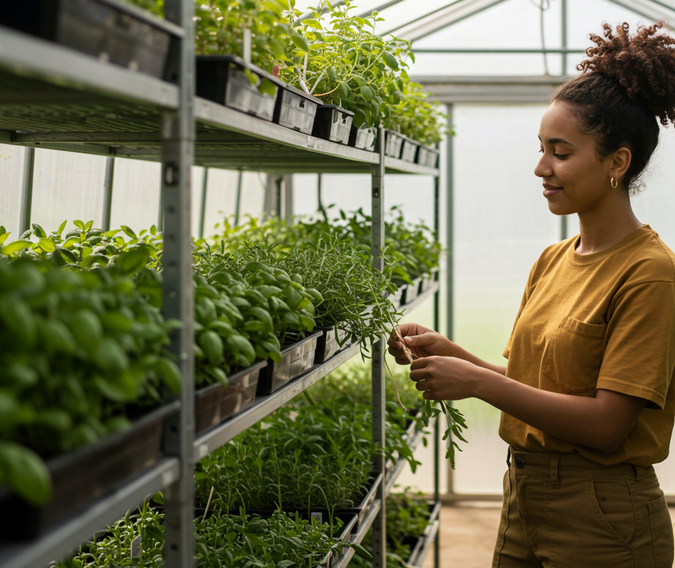What Is the Typical Shelf Life of Herbs Purchased From Suppliers?

Herbs have varying shelf lives depending on type, storage conditions, and processing methods. Here’s how long you can expect them to last.
Dried Herbs: How Long Can You Expect Them to Last?
The shelf life of dried herbs depends largely on how they are processed and stored. Typically, dried herbs can last anywhere from 6 months to 2 years if kept under the right conditions. However, over time, their potency and flavor will gradually degrade, especially if they are exposed to light, air, heat, or moisture.
Herbs like roots, barks, and seeds tend to last longer than delicate flowers and leaves. For instance, dried roots (such as ginger or licorice) may last up to 2 years, while flowers like chamomile or lavender are usually best used within 6 months to 1 year.
To maximize shelf life, it’s crucial to store dried herbs in airtight containers away from light, heat, and humidity. Glass jars with tight-fitting lids or vacuum-sealed bags are ideal for preserving freshness. At Fresh Times, we package our dried herbs to retain their potency and recommend storing them in a cool, dark place for optimal longevity.
Keep in mind that the potency of herbs can be measured by aroma and color. If the fragrance starts to fade or the color turns dull, it’s time to replace your supply.
Liquid Extracts, Tinctures, and Capsules: How Long Do They Last?
Herbal tinctures and liquid extracts generally have a longer shelf life compared to dried herbs, thanks to their alcohol or glycerin base, which acts as a preservative. Most tinctures can last anywhere from 1 to 5 years, depending on the specific herb and alcohol concentration. It’s important to check the manufacturer’s recommendations for the exact shelf life.
The key to preserving liquid extracts is to store them in a cool, dark place away from direct sunlight, which can cause the alcohol to evaporate and the herbal compounds to degrade. Amber glass bottles are often used because they help block UV rays, extending the life of the tincture.
Herbal capsules or tablets, which are typically made from powdered herbs, also have a shelf life of about 1 to 2 years, depending on the formulation and packaging. These should be stored in airtight, moisture-resistant containers and away from heat sources to prevent degradation.
At Fresh Times, we ensure our liquid and encapsulated products are packaged to retain maximum potency throughout their lifespan, and we always include an expiration date for your convenience. Proper storage is key to ensuring your tinctures and capsules remain effective until their expiry date.